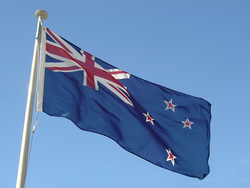
Made in New Zealand
Although Simpro has a global supply chain, our highest-volume products are still manufactured in Auckland, New Zealand. In a globalised world, it may seem incongruous to manufacture machinery in an isolated first-world nation whose largest exports are milk and tourism.
But we’ve stayed in New Zealand for good reasons:
- Like many companies based ‘Down Under’, our products must often operate in extremely isolated and harsh environments – places like Mount Cook, in the Southern Alps, and Alice Springs, in the heart of the Australian Outback – 1,000 miles from the nearest city. Simpro products need to be uncompromisingly tough, reliable, and simple to repair. And we will not outsource production if we can’t guarantee this quality will be upheld.
- Simpro is committed to continuously improving our products, and implementing changes in response to our customers’ feedback. Having manufacturing, design, sales and marketing in a common location allows us to quickly and responsively implement new ideas. As economies move away from mass-production towards a more democratic and individualised model, this helps keep us ahead of the curve.
- Our products are used throughout the waste and recycling industry, which today is very aware of its important role in creating a sustainable society. Our customers around the world care that their equipment is made in a clean, green country with high environmental standards. In fact, New Zealand is one of the most sustainable economies on earth, with over 75% of electricity being generated from renewable sources – the fourth highest rate in the OECD.
- New Zealand is known for a spirit of innovation and unconventional thinking, which we believe is reflected in our range of ‘smart lifting solutions’. By maintaining a strong base in New Zealand, we sustain and enhance this culture.
Of course, our customers always come first, and global supply chains play a key role for every manufacturing business today. But Simpro will always maintain a core capability in New Zealand – because in a genericised, mass-produced world, we believe it gives us an important competitive edge.
